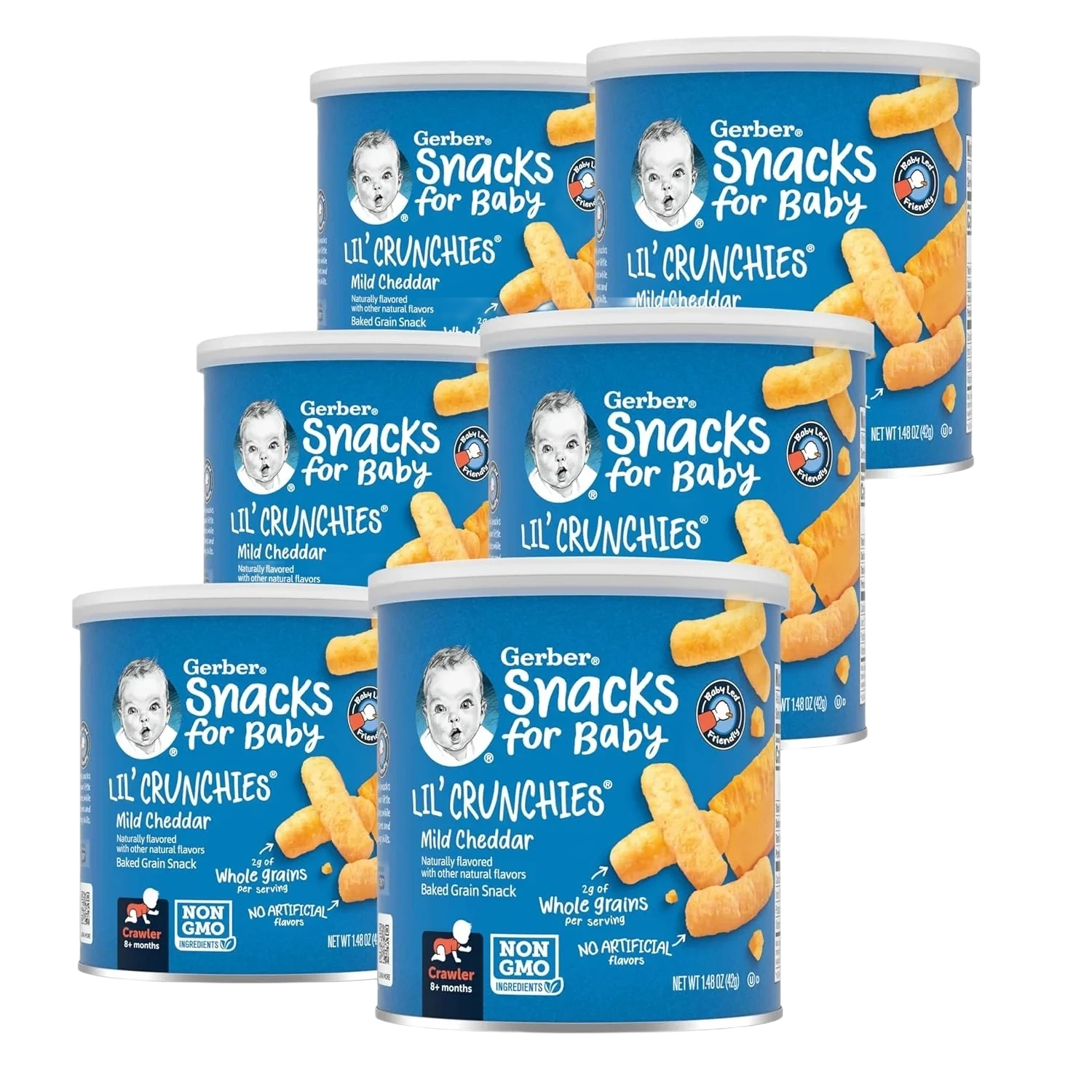Gerber Snacks for Baby LIL' CRUNCHIES Mild Cheddar
snacks • For 1-2 year old toddlers • Consumable 🍝
Product Images
Product Photo

Tap to enlarge
Ingredient List

Tap to enlarge
Is this toddler-safe to eat Gerber Snacks for Baby LIL' CRUNCHIES Mild Cheddar?
Check for Different Age (6 available)
Ingredients Analysis (17 found)












Common Questions About Gerber Snacks for Baby LIL' CRUNCHIES Mild Cheddar
Toddler-friendly? Gerber Snacks for Baby LIL' CRUNCHIES Mild Cheddar
Use caution with Gerber Snacks for Baby LIL' CRUNCHIES Mild Cheddar for 1-2 year old toddlers. Some ingredients may pose concerns.
What ingredients should I watch out for?
We analyzed 17 ingredients in Gerber Snacks for Baby LIL' CRUNCHIES Mild Cheddar. 3 caution. Check the detailed analysis above for specific concerns.
When can toddlers eating snacks?
The appropriate age depends on the specific ingredients. This analysis is for 1-2 year old toddlers. Use the age selector above to check other ages.
⚠️ Important Disclaimers
Product Recognition: Product names are identified programatically and may be incorrect. Always verify product identity yourself.
Safety Analysis: Evaluations are for research only - consult pediatricians for medical decisions. Do not rely solely on this analysis.
No Guarantees: Results may be incomplete or inaccurate. Do not rely solely on this analysis.